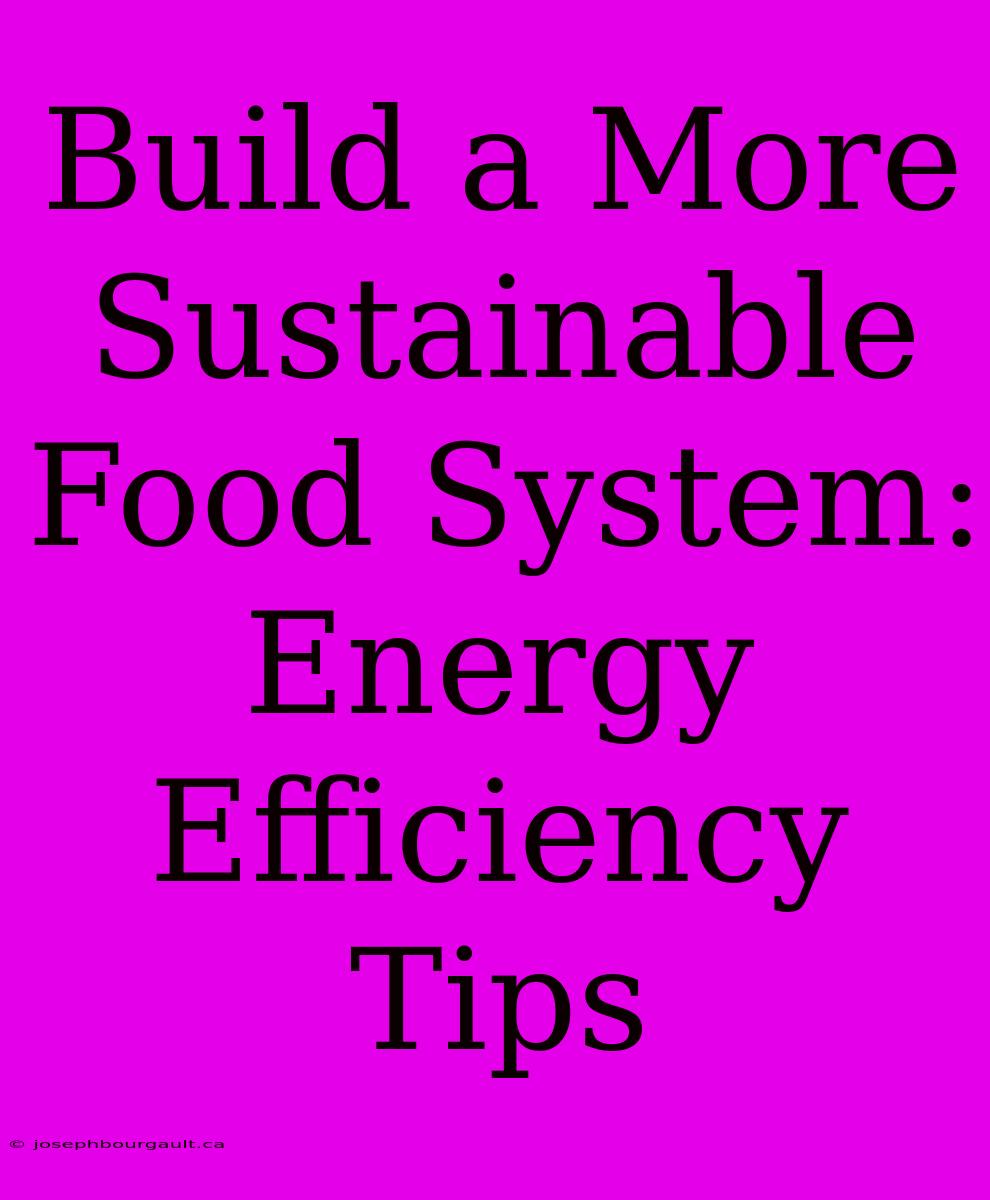Build a More Sustainable Food System: Energy Efficiency Tips
The food system accounts for a significant portion of global energy consumption and greenhouse gas emissions. From farm to table, every step in the food supply chain utilizes energy, and making changes to increase energy efficiency is crucial in building a more sustainable food future.
Energy Efficiency in Agriculture:
1. Precision Agriculture:
Adopting precision agriculture techniques like GPS-guided tractors and sensors can help optimize resource usage, minimizing fuel consumption and fertilizer application.
2. Sustainable Irrigation: Implementing efficient irrigation systems like drip irrigation, which delivers water directly to plant roots, reduces water waste and energy used for pumping.
3. Renewable Energy Sources: Farmers can utilize renewable energy sources like solar panels to power farm operations, reducing reliance on fossil fuels.
4. Crop Rotation and Cover Cropping: These practices improve soil health, reduce the need for synthetic fertilizers, and enhance water retention, indirectly contributing to energy efficiency.
Energy Efficiency in Food Processing:
1. Energy-Efficient Equipment: Upgrading to energy-efficient equipment like refrigeration units, ovens, and processing machinery can significantly reduce energy consumption in food processing facilities.
2. Waste Reduction and Recycling: Minimizing food waste through efficient packaging, storage, and transportation reduces the energy embedded in food that is ultimately discarded. Recycling food processing byproducts can also contribute to energy savings.
3. Process Optimization: Improving process efficiency through automation, streamlining workflows, and optimizing production schedules can significantly reduce energy use.
Energy Efficiency in Food Distribution:
1. Optimized Transportation: Efficient routing, vehicle optimization, and consolidation of shipments can reduce fuel consumption and transportation emissions.
2. Cold Chain Management: Maintaining a consistent cold chain for perishable foods requires significant energy. Utilizing insulation, efficient refrigeration technologies, and optimized storage can reduce energy use.
3. Local Sourcing: Supporting local food production and reducing transportation distances can significantly cut energy consumption.
Energy Efficiency in Food Consumption:
1. Reducing Food Waste: Minimizing food waste at home by planning meals, using leftovers creatively, and practicing proper storage methods can significantly reduce the energy wasted on producing food that is ultimately discarded.
2. Plant-Based Diet: Shifting towards a more plant-based diet reduces energy consumption, as meat production requires significantly more energy than plant-based food production.
3. Choose Local and Seasonal: Prioritizing local and seasonal produce reduces the energy used for transportation and storage, supporting a more sustainable food system.
Building a Sustainable Future:
Energy efficiency in the food system is a critical aspect of building a more sustainable future. By implementing these energy-saving measures, we can reduce environmental impact, conserve resources, and ensure a more secure and resilient food system for generations to come.

